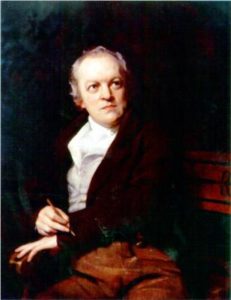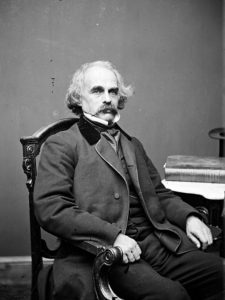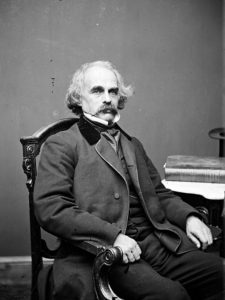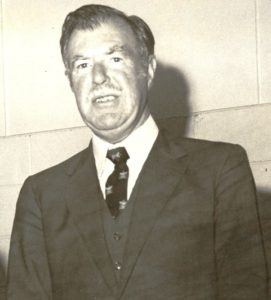We have decided to create the most comprehensive English Summary that will help students with learning and understanding.
The Great Stone Face Summary Class 8 English Honeydew
The Great Stone Face 1 Summary in English
The Great Stone Face was the work of nature. It was formed on the side of a mountain by some rocks. Seen from a distance they looked like a human face and alive. Going near, the face turned into a heap of rocks. The people believed that the valley owed much of its fertility to that face.
One day a mother and her little child, Ernest sat at the door of their cottage. He wished that the Great Stone Face could speak. The mother hoped to see a man some time with a similar face. She told a curious stray, she herself had heard in her childhood. A great man bearing that stone face would be bom some day. That was a prophecy.
Ernest could never forget that story. He was very helpful to his mother. He grew up to be a gentle, quiet young man. The Stone Face became his teacher. The child used to watch it for hours.
Once a rumour spread that the great man, who was to bear a resemblance to the Great stone face, had appeared at last. Many years ago, a young man had left the valley and settled at a distant sea port. He became very rich. Then he decided to return to his native place. He was Mr. Gathergold. People welcomed him as the great man because he resembled the great stone face. But Ernest didn’t agree with these people.
Years went on. Ernest grew to be a young man. He drew little attention. He had nothing remarkable. But he was hardworking and kind. He still loved to gaze upon the great stone face. He wondered why the stone faced man was taking so long in coming to that valley.
Mr. Gathergold died as a poor man and was buried. People then agreed that there was no likeness between the mined merchant and the majestic face upon the mountain.
It so happened that another son of the valley returned to his native valley. He had become a famous commander. The people turned to him blindly and accepted him as the Great Stone Face. But Ernest could not see any similarity between them.
The Great Stone Face 1 Summary in Hindi
विशाल पत्थर पर बना चेहरा प्रकृति की कारीगरी थी। यह पर्वत के बगल में कुछ चट्टानों से बना था। दूरी से देखने पर ये पत्थर किसी जीवित मानव चेहरे की भाँति दिखते थे। पास जाने पर वह चेहरा पत्थरों के ढेर में बदल जाता था। लोगों की मान्यता थी कि घाटी की उर्वरता उसी चेहरे की देन है।
एक दिन एक माँ अपने छोटे लड़के अर्नेस्ट के साथ झोंपड़ी के दरवाजे पर बैठी थी। बच्चे ने इच्छा व्यक्त की कि काश वह विशाल चेहरा बोल सकता। माँ को आशा थी कि इस प्रकार के चेहरे वाला असली व्यक्ति कभी न कभी स्वतः आयेगा। उसने एक विचित्र कहानी सुनाई जो उसने भी बचपन में सुनी थी।
उस पत्थर के चेहरे वाला महान व्यक्ति कभी पैदा होगा। यही लोगों की भविष्यवाणी थी।
अर्नेस्ट इस कहानी को कभी भूल न सका। वह माँ की बहुत मदद करता था। वह एक सीधा, सरल और शांत स्वभाव का युवक बन गया। पत्थर वाला चेहरा उसका शिक्षक बन गया। बच्चा उसे हर दिन घंटों देखा करता था।
एक बार अफवाह उड़ी कि वैसे चेहरे वाला व्यक्ति गाँव में आ गया है। अनेक वर्ष पूर्व एक युवक घाटी छोड़कर चला गया था और वह दूर एक बन्दरगाह पर जाकर बस गया था। वह बहुत धनवान हो गया। फिर उसे अपने जन्म स्थान पर लौटने की इच्छा हुई। उस धनी गेदरगोल्ड का लोगों ने एक महान व्यक्ति के रुप में स्वागत किया क्योंकि उसका चेहरा उस पत्थर के चेहरे से मिलता जुलता था। पर अर्नेस्ट आम लोगों की राय से सहमत नहीं हुआ। काफी वर्ष बीत गए। अर्नेस्ट नवयुवक हो गया। उसकी तरफ किसी का ध्यान आकर्षित नहीं होता था। उसमें कोई उल्लेखनीय विशेषता नहीं थी। परन्तु वह परिश्रमी और दयालु था। वह अभी भी उस पत्थर के चेहरे को घंटों निहारता रहता था। उसे अभी भी हैरानी होती थी कि पथरीले चेहरे वाला व्यक्ति आने में इतना विलम्ब क्यों कर रहा है।
गेदरगोल्ड एक गरीब की स्थिति में मरा तथा दफना दिया गया। फिर लोगों ने स्वीकारा कि वह व्यापारी पर्वत पर बने शानदार चेहरे वाला न था।
संयोग ऐसा हुआ कि घाटी का ही एक अन्य व्यक्ति स्वदेश लौटा। वह एक प्रसिद्ध सैन्य कमाण्डर था। लोग उसकी ओर अंधविश्वास के साथ आकर्षित थे और उसे पत्थर जैसे महान चेहरे वाला मानते थे। पर अर्नेस्ट को दोनो में कोई समानता नहीं दिखी।
The Great Stone Face 2 Summary in English
Many years passed. Ernest was now a middle aged man. Age brought white hairs upon his head and wrinkles across his face. But it also made him veiy wise. He became famous in the valley. Learned men from cities came to see him and talk with him.
When Earnest had been growing old, a new poet who was previously the native of that valley arrived there. He had spoken high of the Great Stone Face also in his poem. His songs also reached Ernest’s ears. It appeared to him that his face had the likeness of the Stone Face.
The poet too had heard of Ernest’s wisdom and wished to meet him. One summer day he arrived at Ernest’s door. He sought a night’s shelter. Ernest readily agreed. The two talked together. The poet found his host very wise, gentle, kind and hospitable. Ernest looked into the poet’s eyes and features. He compared the poet’s face with that of the Stone Face. When the poet asked him why he was looking sad he told that all through his life he had awaited the fulfilment of a prophecy and when he read his poems he became convinced that the poet was the real Stone Faced man.
The poet, however, claimed that he did not bear the likeness to the stone face. It was true that he had high dreams in his mind but sometimes he himself had no belief in those dreams. The eyes of both were wet with tears. In the evening, together they went to a meeting place. Ernest spoke out his thoughts. His words had power because they had depth. They were ttye words of life, a life of good deeds and selfless love. His face took on a grand expression. The poet cried out that Ernest was the real likeness of that Stone Face. The people agreed with him. The prophecy was fulfilled, the poet thought so. But Ernest still kept hoping that some wiser and better man than himself would appear looking very much like the Great Stone Face.
The Great Stone Face 2 Summary in Hindi
कई वर्ष बीत गये। अर्नेस्ट अधेड़ आयु का हो गया। बढ़ती आयु के कारण उसके सिर के बाल सफेद हो गये और चेहरे पर झुर्रियाँ आ गई। पर साथ ही वह अधिक ज्ञानी भी हो गया। घाटी में वह विख्यात हो गया। अनेक नगरों से विद्वान उससे मिलने और बातें करने आने लगे।
जब अर्नेस्ट वृद्ध हो गया तो एक नया कवि जो पहले इसी घाटी में रहता था, घर लौट आया। उसने उस विशाल पत्थर के चेहरे को भी अपनी एक कविता में सराहा था। उसके गीत अर्नेस्ट के कानों में भी पहुँच गये। उसे लगा कि वह उस पत्थर के चेहरे से समानता रखता है। कवि ने भी अर्नेस्ट की बुद्धिमत्ता के बारे में सुन रखा था। और वह उससे मिलना चाहता था। गर्मी के मौसम में एक दिन वह अर्नेस्ट के दरवाजे पर आया। उसने एक रात के लिये पनाह माँगी। अर्नेष्ट एकदम मान गया। दोनों ने मिलकर बातें की। कवि ने अर्नेस्ट को एक ज्ञानी, सरल, उदार तथा अतिथि सत्कार करने वाला पाया। अर्नेस्ट ने कवि की आँखों में झाँका और उसका चेहरा देखा। उसने कवि के चेहरे की समानता पत्थर वाले चेहरे से की। उसने स्पष्ट किया कि वह उदास क्यों है। वह तो एक भविष्यवाणी के पूरा होने की प्रतीक्षा कर रहा है। कवितायें पढ़कर उसे विश्वास हो गया था कि कवि ही पत्थर के चेहरे वाला असली व्यक्ति है।
पर कवि ने इस बात से इन्कार कर दिया कि उसका चेहरा पत्थर वाले चेहरे के समान है। यह ठीक है कि उसके मन में महान सपने हैं पर उसे स्वयं कई बार उन सपनों पर आस्था नहीं थी। दोनों व्यक्तियों की आँखें नम हो गई। शाम को दोनों ही एक सभा में भाग लेने गये। अर्नेस्ट ने अपने विचार रखे। उसके शब्दों में एक कशिश थी क्योंकि उनमें गहराई थी। वे जीवन से जुड़े शब्द थे एक नेक कामों वाले तथा निस्वार्थ प्रेम भरे जीवन से। उसके चेहरे पर भव्य भाव उभर आया। कवि चीख उठा कि अर्नेस्ट का ही चेहरा उस पत्थर वाले चेहरे के समान है। लोग उसकी बात से सहमत हो गये। भविष्यवाणी सच हो गई थी, कवि ने यह सोचा। पर अर्नेस्ट अभी भी यही आशा करता रहा कि कभी तो उससे अधिक ज्ञानी और श्रेष्ठ व्यक्ति आयेगा जिसकी आकृति उस पहाड़ पर चेहरे के बिल्कुल सदृश होगी।



